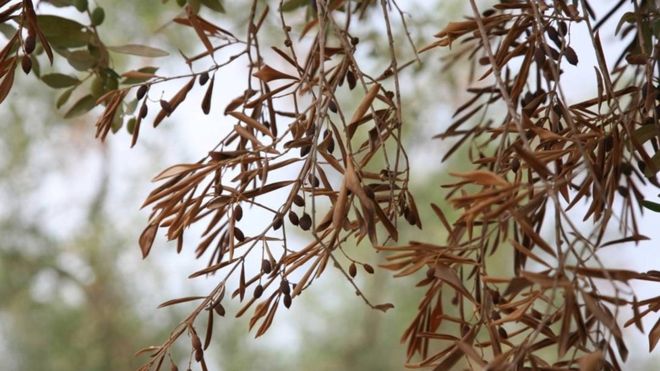The European Commission says it will provide seven million euros (£5m) to fund research into a disease that poses a “very serious threat” to olive trees.
The announcement was made at a scientific workshop in Brussels that focused on the most effective ways to tackle Xylella fastidiosa.
First recorded in southern Italy in 2013, the disease has since been detected in southern France, BBC reported.
Experts describe it as one of the “most dangerous plant pathogens worldwide”.
The funding, which comes from the EU’s Horizon 2020 programme, is part of the effort to tackle the agent before it spreads more widely to other key olive-producing regions within Europe.
Globally, the EU is the largest producer and consumer of olive oil. According to the European Commission, the 28-nation bloc produces 73% and consumes 66% of the the world’s olive oil.
“The outcomes from this workshop could help steer where the money should go in terms of the most pressing aspects of the issue,” a EFSA spokesman told BBC News.
Experts warn that should the disease, which has numerous hosts and vectors, spread more widely then it has the potential to devastate the EU olive harvest.
The EFSA Panel on Plant Health produced a report in January warning that the disease was known to affect other commercially important crops, including citrus, grapevine and stone-fruit.
The workshop was bringing in experts from places such as Brazil and the US who have a lot of experience of working with the pathogen.
According to the European and Mediterranean Plant Protection Organisation (EPPO), the pathogen had been detected by member nations on imported coffee plants from South America. However, these plants were controlled and the bacterium did not make it into the wider environment.
H.Z

